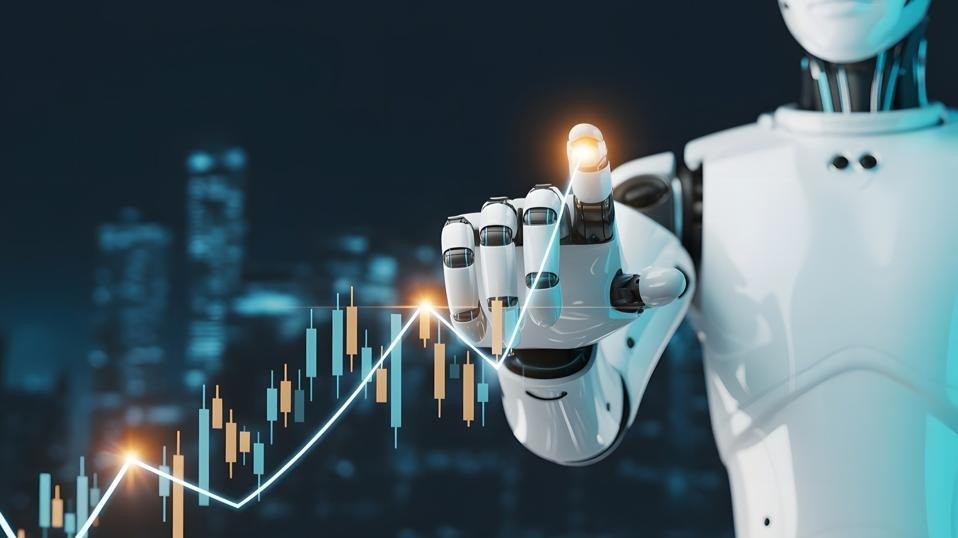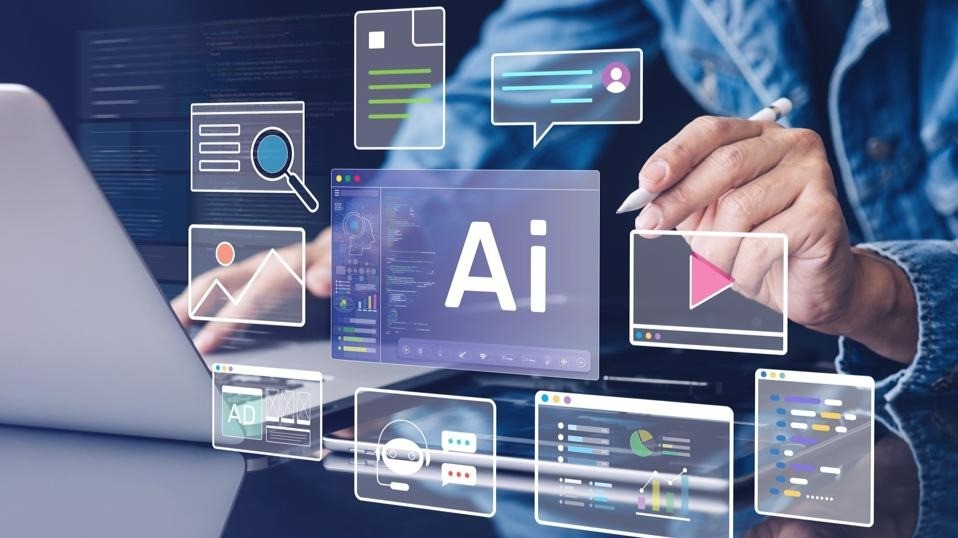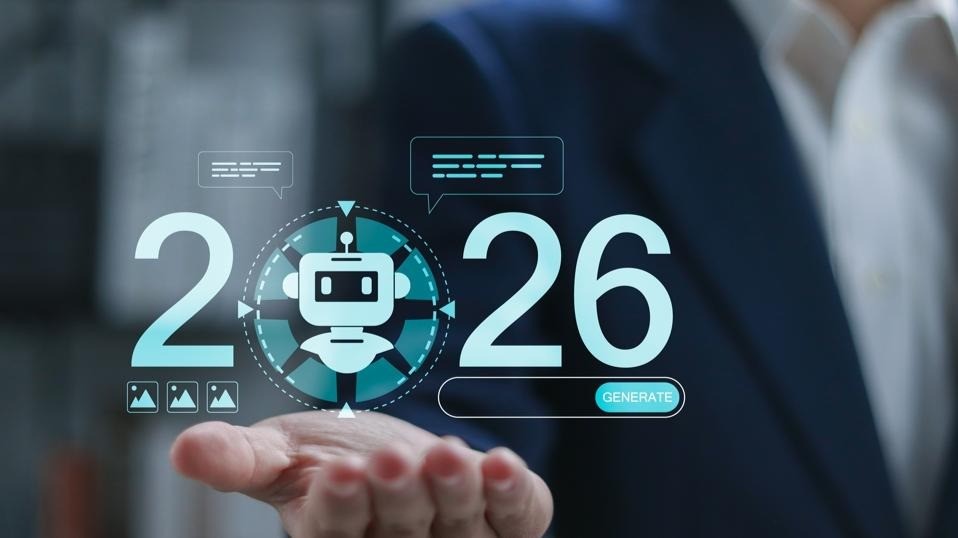Artificial Intelligence and Machine Learning In Healthcare
2 July 2021
Crucial time and tremendous amounts of resources are lost every day in the world’s healthcare systems. Misdiagnoses cost unnecessary additional tests, result in delayed treatment plans and diminished survival or remission rates from what would have transpired had it been caught and identified correctly earlier. False positives on tests. Trials, treatments and research completed in silos so there’s no leveraging the insights across the country or the world.

Machine learning offers lots of opportunities for the healthcare industry
Some healthcare and technology innovators are collaborating and trying to change our current reality by experimenting with artificial intelligence (AI) and machine learning. Computers and the algorithms they run can scrub colossal amounts of data—much faster and more accurately than human scientists or medical professionals—to unearth patterns and predictions to enhance disease diagnosis, inform treatment plans and enhance public health and safety.
Based on the extraordinary impact improvements to the healthcare system can have for so many people and its potential to save lives and money, healthcare has become a key industry for investment and efforts for AI and machine learning. Not only have major players such as IBM and Microsoft jumped into their own AI healthcare projects, but several start-ups and smaller organisations have begun their own efforts to create tools to aid healthcare.
And, the savings would be tremendous. One report from McKinsey estimates big data could save medicine and pharma up to $100B annually as a result of improved efficiencies in clinical trials and research, better insight for decision-making and new tools that will help insurers, regulators, physicians and consumers make better decisions.
Machine learning algorithms improve the more data they are exposed to. If there is one thing the healthcare systems has in abundance, it’s data. Due to different storage systems, ownership and privacy concerns, and no established process that allows people to easily share data with each other, there is a major amount of analysis that’s not currently being done that could glean tremendous results for patients, doctors and healthcare organisations.
AI aids in disease identification and diagnosis
Much of the AI work done thus far in healthcare is focused on disease identification and diagnosis. From Sophia Genetics that is using AI to evaluate DNA to diagnose illnesses to smartphone apps that can determine a concussion and monitor other concerns such as newborn jaundice, lung function of those suffering from chronic respiratory diseases, blood pressure, Haemoglobin levels and even evaluate coughs, disease and health monitoring is at the forefront of the machine learning efforts.
Since heart disease is a primary killer of human beings around the world, it’s no surprise that effort and focus from many AI innovators is on heart disease diagnosis and prevention. The current process to determine an individual’s risk factor for a heart attack is to look at the American College of Cardiology/American Heart Association’s (ACC/AHA) list of risk factors that include age, blood pressure and more. However, this is really a simplistic approach and doesn’t take into account medications someone might be on, the health of the patient’s other biological systems and other factors that could increase odds of a heart ailment. Several research teams, including those at Carnegie Mellon University and a study from Stephen Weng and his associates at University of Nottingham in the United Kingdom, are working toward enhancing machine learning so algorithms will be able to predict (better than humans) who is at risk and when they might be at risk for a heart attack. Preliminary results of the AI algorithms were significantly better at predicting heart attacks than the ACC/AHA guidelines.
From liver disease to cancer and even psychosis and Schizophrenia, AI algorithms are changing the game in terms of disease diagnosis. Machines are now learning how to read CT scans and other imaging diagnostic tests to identify abnormalities. Although some predict the end of radiologists as we know them, others see AI acting as a radiologist’s assistant.
Crowdsourcing Treatment Options and Monitoring Drug Response
Another area where AI can impact healthcare is in the way information is gathered and shared about disease treatment. Dr. Tony Blau is one researcher who launched a start-up to put social media to work to connect people to share different cancer treatment options. Another group used Twitter and Facebook for pharmacovigilance as a way to source info about drug trials that might not have been reported to the industry or regulatory agencies. AI is already being used by the pharma industry in the initial screening of drug compounds as well as to determine what drugs might work better for individuals based on their biology.
Monitor Health Epidemics
There has already been some powerful indicators of AI’s influence to help monitor and predict health epidemics around the world, and in one case a computer algorithm identified an Ebola outbreak nine days before the World Health Organisation reported it. The computer sifted through social media sites, news reports and government websites to identify there was an outbreak. As with any algorithm, the more data it is given, the more learning is achieved and therefore the better it is in the future. Although the current work to identify outbreaks is imperfect, it has significant potential.
Artificial intelligence and machine learning in healthcare will continue to get better and impact disease prevention and diagnosis, extract more meaning from data across various clinical trials, help develop customised drugs based on an individual’s unique DNA and inform treatment options among other things.
Related Articles
5 ESG Trends That Will Shape Business in 2026
By now, “smart” versions exist of just about every home appliance, gadget and gizmos we can think of. However, manufacturers continue[...]
The 5 Robotics Trends In 2026 You Must Get Ready For Now
By now, “smart” versions exist of just about every home appliance, gadget and gizmos we can think of. However, manufacturers continue[...]
10 Generative AI Trends In 2026 That Will Transform Work And Life
By now, “smart” versions exist of just about every home appliance, gadget and gizmos we can think of. However, manufacturers continue[...]
Dreamforce 2025 Proved The Agentic Enterprise Has Arrived
By now, “smart” versions exist of just about every home appliance, gadget and gizmos we can think of. However, manufacturers continue[...]
The 8 Biggest AI Agent Trends for 2026 That Everyone Must Be Ready For
By now, “smart” versions exist of just about every home appliance, gadget and gizmos we can think of. However, manufacturers continue[...]
7 Workplace Trends That Will Define 2026
By now, “smart” versions exist of just about every home appliance, gadget and gizmos we can think of. However, manufacturers continue[...]
Sign up to Stay in Touch!
Bernard Marr is a world-renowned futurist, influencer and thought leader in the fields of business and technology, with a passion for using technology for the good of humanity.
He is a best-selling author of over 20 books, writes a regular column for Forbes and advises and coaches many of the world’s best-known organisations.
He has a combined following of 4 million people across his social media channels and newsletters and was ranked by LinkedIn as one of the top 5 business influencers in the world.
Bernard’s latest book is ‘Generative AI in Practice’.










Social Media